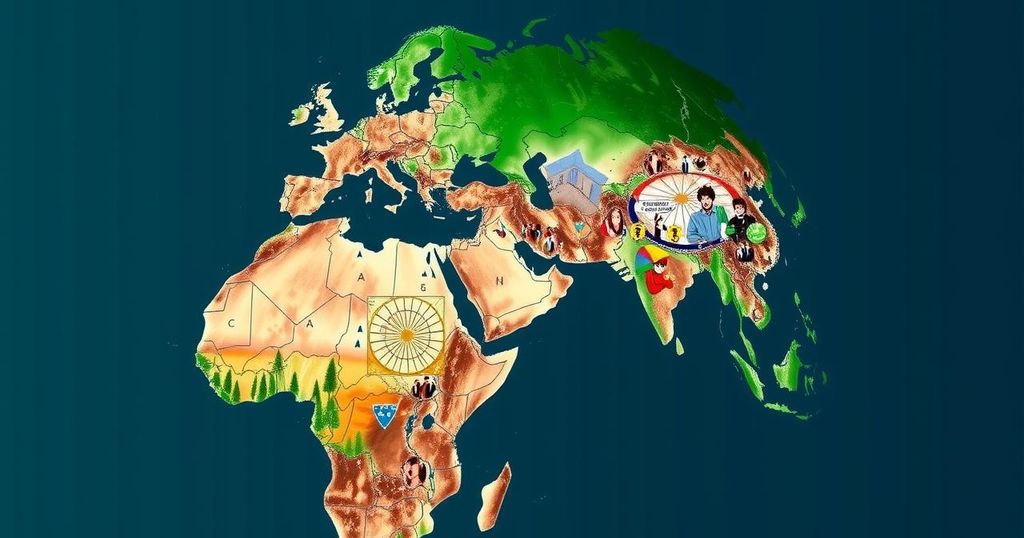Developing countries condemned COP29’s climate finance deal as inadequate, highlighting a $300 billion annual pledge from wealthy nations as “paltry.” Criticism arose from numerous nations, including India and Nigeria, citing inaction on severe climate impacts. The agreement is viewed as a starting point, but urgent calls for increased financial support and accountability remain paramount amid rising global temperatures.
At the recent COP29 Climate Conference held in Baku, a contentious climate financing agreement was reached, yet developing nations have vehemently criticized the $300 billion annual pledge from wealthy nations as grossly inadequate. Representatives from poorer nations asserted that this figure does not reflect the urgency and scale of the challenges they face due to climate change. India, Sierra Leone, and Nigeria, among others, condemned the pact for its perceived insufficiency in addressing the severe impacts of climate disasters, with India branding the deal an “optical illusion” that would not adequately confront the crisis.
The negotiations at COP29 followed weeks of tumultuous discussions where almost 200 countries struggled to find common ground on climate financing, with many developing nations hoping for substantial increases over previous commitments. Despite expectations for a transformative agreement, the outcome was marked by disappointment as advocates declared it a failure to support the world’s most vulnerable populations adequately. Immediate calls for more comprehensive financial commitments were made, particularly from nations grappling with existential threats like rising sea levels.
In a broader context, the agreement signifies a partial commitment from developed nations, who only finalized the $300 billion figure at the last moment. Some leaders within these nations highlighted the deal as a hopeful beginning, but the reality of the expectation set forth by the UN remains unmet, leaving developing nations feeling betrayed. The meeting underscored stark divisions over how nations significantly responsible for greenhouse gas emissions should contribute to alleviating the suffering of those least responsible for climate change.
Ultimately, while the agreement establishes a framework for climate finance moving forward, the stark criticisms from developing nations signal a clear need for further negotiations to enhance support and accountability from wealthier countries. The urgency of climate change demands more than what is currently on the table, and many representatives left the conference with a sense of unresolved challenges that require immediate action and additional funding.
The COP29 Climate Conference was held in Baku, Azerbaijan, where nearly 200 nations gathered to negotiate financial commitments to address the impacts of climate change, particularly on developing countries. These nations are often the most affected by climate-related disasters despite contributing minimally to global greenhouse gas emissions. The proposed $300 billion annual contribution from wealthier nations was a focal point of contention, as developing countries sought assurances of significantly higher investments to tackle rising seas and extreme weather patterns, which threaten their very existence. The negotiations also highlighted persistent disparities between developed countries, emerging economies, and developing nations in terms of their responsibilities for climate change and their contributions to climate finance.
The COP29 agreement on climate financing has drawn substantial criticism from developing nations, who deem the $300 billion annual pledge from wealthy countries insufficient to meet their pressing needs. Leaders from impacted nations stressed the criticality of enhanced funding to combat the existential threats posed by climate change. While the agreement marks a framing shift for future climate finance, the substantial gap between expectations and the current outcome reflects a significant challenge that must be addressed to fulfill the commitments needed for global climate action.
Original Source: jordantimes.com






